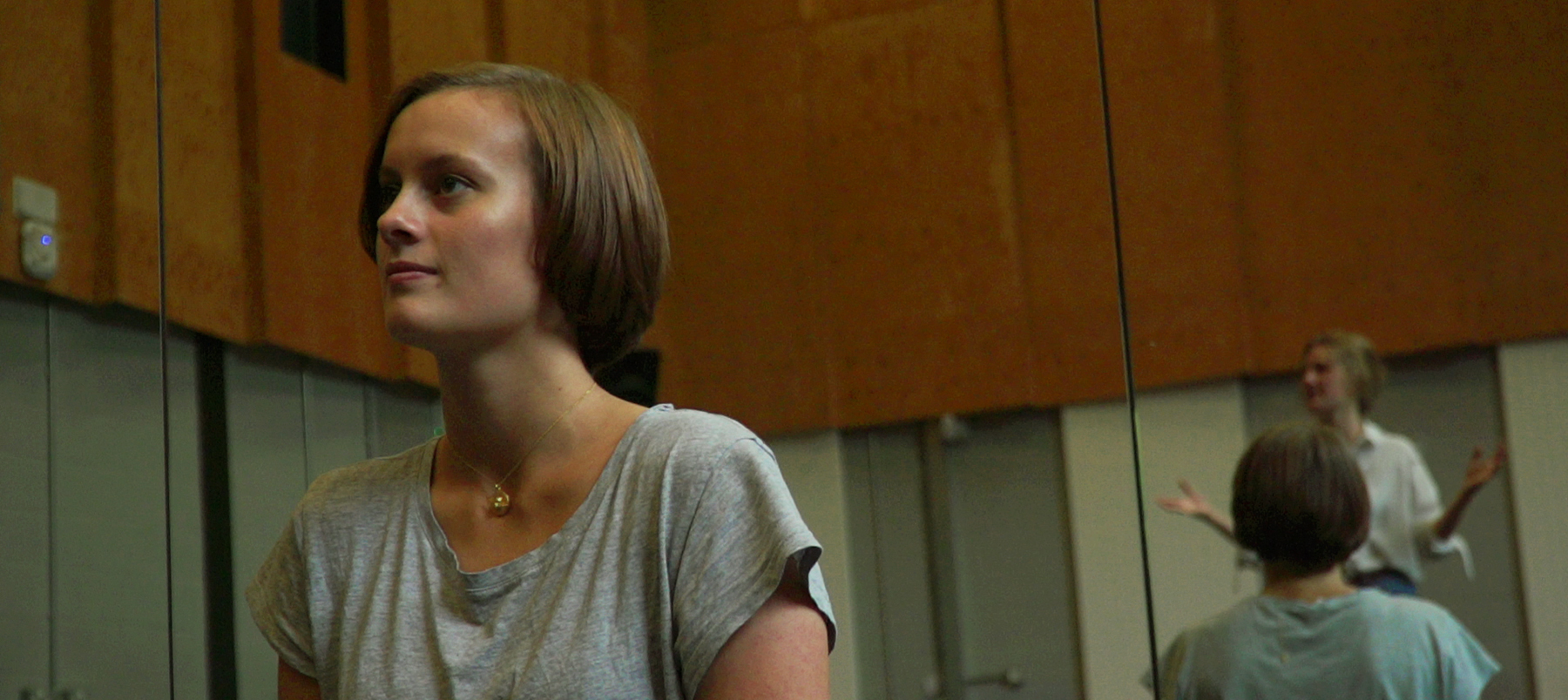
Cara Honey, director of ‘Two Hundred Years of Autumn’ (pictured above), reflects on the life of one of England’s greatest poets – and his time in Winchester.
Two hundred years ago the great Romantic John Keats came to Winchester. He spent two months in the city between August and October 1819.
1819 was the greatest year of Keats’ artistic life. That year he wrote all his greats odes, including his odes to Psyche and to a Nightingale and his odes on Melancholy, Indolence and a Grecian Urn. During his stay in Winchester, he also wrote one of the best-known and best-loved poems in the English language, his ode ‘To Autumn’.
Keats left Winchester and returned to London on 8 October 1819. He became ill shortly afterwards, and would never write a great new poem again. He died of tuberculosis 16 months later, in a house next to the Spanish Steps Rome on 23 February 1821. He was only 25.
Keats lived a short life, sometimes hard and sometimes joyous. He wrote about beauty, nature and mythology; but he also had his demons.
Keats was from a working class background. His family were by no means well off. He lost both his parents as a child and his family’s estate was held in trust. Keats never saw the majority of this money and spent his short life relying on the kindness of his friends and acquaintances. This was something that he often felt profusely guilty about.
I studied BA (Hons) Drama at the University of Winchester and have returned to the University to direct ‘Two Hundred Years of Autumn’, a show celebrating Keats’ life and work which we will be staging at Theatre Royal Winchester on the evening of 7 October as part of the city’s celebrations of this very special anniversary.
The show involves contributions and performances from students and graduates from the University, as well as other theatre, arts and literary organisations, and members of the public. As we’ve been working to develop the show, I’ve been repeatedly struck by how much we’ve found ourselves relating to the experiences and sensibilities of this poet who died nearly two hundred years ago.
We all have a lot in common with Keats – whether it is with his personal or artistic or material struggles – and we can all learn from how he drew hope and inspiration from the beauty and joy which he found in the world. Keats found those qualities in the art and the nature which he so loved – and indeed in our glorious city of Winchester and the surrounding countryside.
Those of us who’ve had the pleasure to live, study and work in Winchester also have that much in common with Keats. Who could resist the allure of this city of King Alfred, the birthplace of the English language, a favourite spot for Thomas Hardy (whose fictional heroine Tess Durbeyfield died here) and Jane Austen (who died here and was buried in the medieval Cathedral), a city whose architecture echoes with history, a place of gorgeous green spaces, crossed by the clear waters of the River Itchen and encircled by those rolling Hampshire hills?
We may easily recognise how these scenes inspired Keats two hundred years ago to write his ode ‘To Autumn’, a celebration of nature’s bounty, an elegy to a changing world which has however here in Winchester (at least) so often remained unchanged. Yet even in today’s world of increasingly violent change – indeed especially today – as the rainforests burn and the ice caps melt, it seems increasingly important to appreciate the beauty and fragility of our environment, as Keats once did.
Keats understood the essential value of the natural environment; he understood what we can learn from history and art, and how our cultures can enrich our lives, however young or old we may be, however long or short those lives may be.
Keats also understood love – its pleasures and splendours and pains. Before coming to Winchester he had fallen in love with the bright and brilliant Fanny Brawne. They adored one another but never married. When Keats died, she mourned for three years, cutting her hair, wearing black and walking the paths they had wandered together. She cherished his numerous beautiful letters, those little literary masterpieces in the exquisite joys and trials of life and love.
Our show will feature performances of extracts from these letters, as well as some of Keats’ greatest poetry. It will also feature new writing and songs inspired by Keats – written by students and local people. The show will feature professional performers and University of Winchester students, along with members of Winchester Youth Theatre and Blue Apple Theatre, a company whose casts exclusively feature performers with learning disabilities.
We hope you will come and join us for an evening of diversity, community, passion and enthusiasm, an evening of aspiration and ambition, which will seek to bind together our artists, performers and audiences in a shared empathy with the immortal spirit of John Keats.
Working on Keats – working with so many people on Keats – working with Keats has been an inspiration for me. I’d love you to come and share that.
Congratulations to Emily Griffiths, Rosanna Foster and Katie Walters – all undergraduate students at the University – who won The Keats Foundation ‘Living Year’ essay competition, designed to mark 200 years of John Keats in Winchester. Both Emily and Katie were a part of ‘Two Hundred Years of Autumn’ – Emily as a researcher and Katie wrote a monologue which will be performed by Jacob Hulland.
‘Two Hundred Years of Autumn’ will play at Theatre Royal Winchester on the evening of Monday 7 October 2019. Tickets are available (for only £5) here and follow us on Twitter: @200Autumn
Press Office | +44 (0) 1962 827678 | press@winchester.ac.uk | www.twitter.com/_UoWNews
Back to media centre